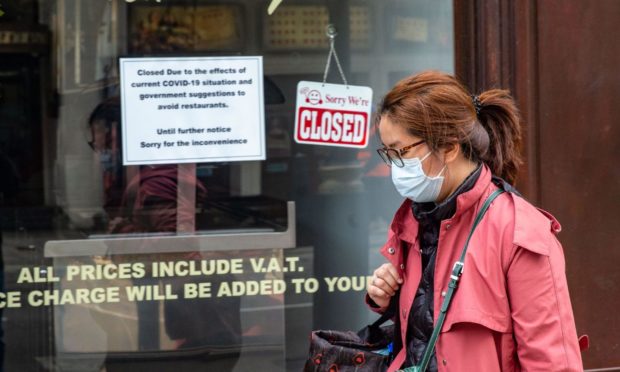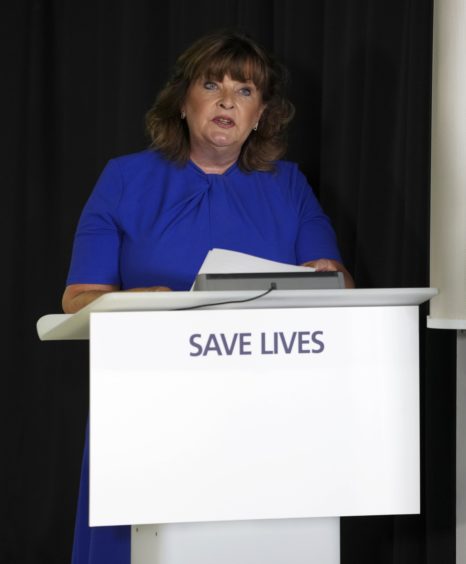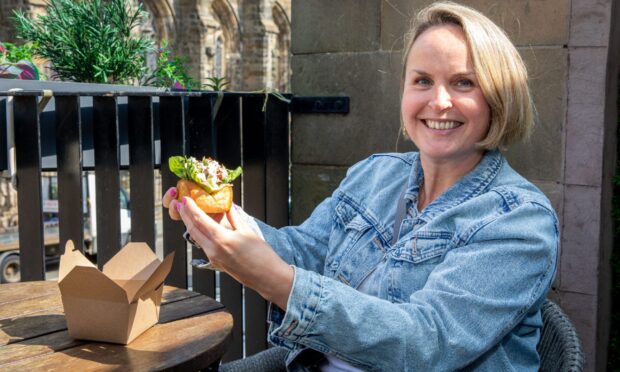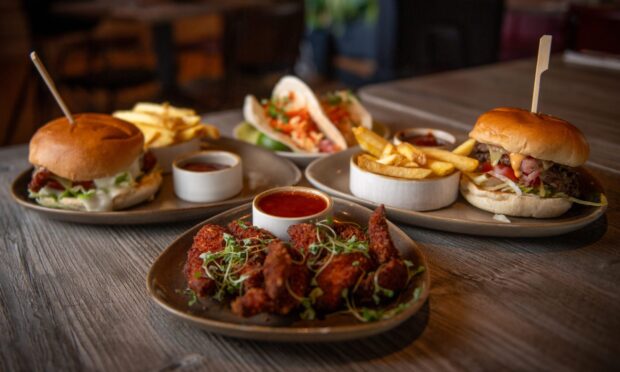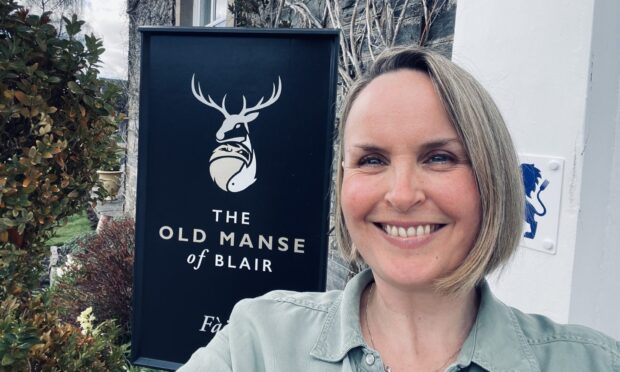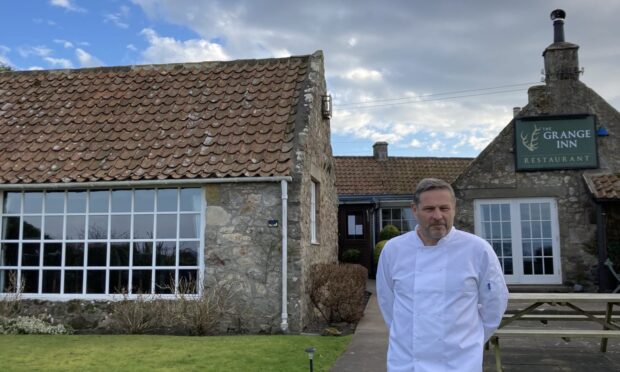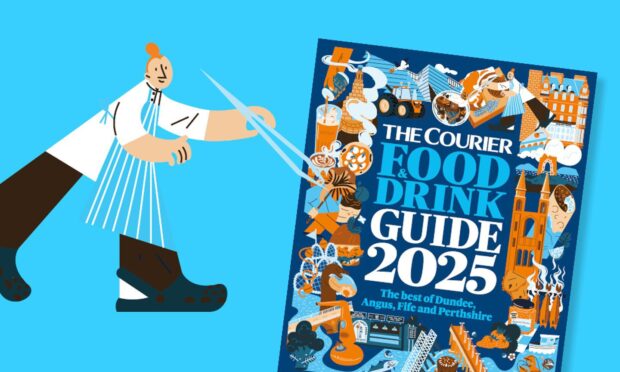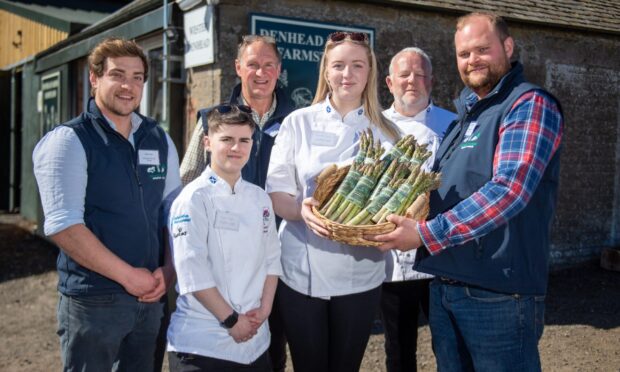After the Scottish Government outlined details of a fund to help businesses affected by the latest Covid-19 restrictions in Scotland, we break down who is entitled to what – and whether it will be enough to save those on the brink.
On Friday, the economy secretary Fiona Hyslop revealed which businesses would be able to access a £40million fund aimed at softening a new financial blow from tougher restrictions on trading.
From the moment the restrictions – which came into place on Friday at 6pm – were announced by the First Minister last Wednesday, pub, restaurant and hotel owners waited anxiously to find out how much of the support package, outlined on the same day, they could access.
Those who did some quick sums immediately voiced their concerns. Kate Nicholls, CEO of UK Hospitality, said: “In Scotland, £40million in 16,000 licensed premises equates to just over £2,000 for those people – it barely keeps the lights on let alone saves a job.”
Ms Hyslop announced one-off grants of up to £3,000 would be made available to businesses legally required to close by the new regulations and would depend on rateable value.
Bars and restaurants in the central belt have been forced to close for two weeks up and until October 25, while those elsewhere can continue to operate over the same period but only until 6pm indoors, where they cannot serve alcohol. Those with outdoor areas can serve alcoholic drinks outside up until 10pm.
It worries us greatly that government help seems to be linked to premises that are LEGALLY closed. What about those under the current restrictions that can open legally but are not viable eg pubs open but cannot serve alcohol or hotels only serving a few residents. @UKHofficial
— The SLTA (@SLTAssociation) October 9, 2020
On Friday evening, bar and restaurant workers in Edinburgh, Glasgow and Aberdeen, dumped piles of leftover ice in key locations to protest over the latest restrictions.
And the Scottish Hospitality Group have since released their own version of FACTS – used by the Scottish Government to enforce messaging around face coverings, hygiene, social distancing, testing and self isolating – with spokesperson Stephen Montgomery sharing this video on Twitter spelling out their concerns.
Here are the FACTS of the Scottish Hospitality Group. #SHG @ScotGovFM @scotgov @BBCScotlandNews @SkyNews @heraldscotland #hospitality @TheSLTN @dramscotland pic.twitter.com/4Fhj93qQfE
— Townhead Hotel (@Theetownhead) October 11, 2020
Today, 100 hoteliers from across Scotland, including Darren Lyko-Edwards, chief financial office of SLEEPERZ Hotel in Dundee and Gordon Mackintosh, general manager of the Carnoustie Golf Hotel, wrote to the first minister Nicola Sturgeon to urge her to rethink the ban on serving alcohol to guests in public areas.
Jill Chalmers, managing director of Glenapp Castle in Ayrshire, who is leading the group, said: “Not being able to sell alcohol in public areas to hotel residents in Scotland negatively impacts their stay and future guests are already starting to cancel their bookings. This measure in particular is threatening the small thread of revenue – a lifeline for many – which still exists for hotel businesses in Scotland at this difficult time.”
Winter Furlough Scheme
The Scottish Government had delayed announcing details of its new hospitality fund until chancellor Rishi Sunak had outlined his plans for a new winter furlough scheme. It will start in November when the existing furlough scheme comes to an end and is aimed at businesses legally forced to close under local or national coronavirus restrictions.
The chancellor said on Friday that businesses in that situation will receive grants to pay two thirds (67%) of the wages of staff up to a maximum of £2,100 a month.
Announcing details of the Scottish fund later that day, Ms Hyslop said £9 million of the funding would go towards helping with the costs of re-furloughing staff by supporting the 20% salary contribution required by the UK Government.
What can be accessed by affected businesses in Fife, Tayside, Perthshire and beyond?
Ms Hyslop said a hardship fund with grants of up to £1,500 will support businesses that remain open but are directly impacted by the new measures aimed at limiting the spread of coronavirus.
In a statement, she added: “The temporary restrictions announced by the First Minister are absolutely essential if we are to prevent a return to the dangerous level of infections that we experienced earlier this year.
“It is a difficult balance and we do not underestimate the challenge that these new measures present for businesses – particularly those in the hospitality sector.
“We have developed a funding plan which will help to protect jobs over the coming fortnight and I encourage business owners to apply for support.
“We are also committed to helping businesses meet their contribution to furlough costs, where staff have to be re-furloughed. We have increased the size of the grant available and are urgently identifying a mechanism to deliver additional support on top of that.
“While I welcome the UK Government’s plans to adapt the job retention scheme and the associated consequential funding, we still require clarity on what the Chancellor’s announcement will mean for Scotland.
“This situation further underlines the need for us to have the financial flexibility which would help us to rebuild our economy.”
How will the funds be distributed to hospitality businesses?
Ms Hyslop’s statement said grants will be distributed by local authorities. Up to £2,000 will be payable to businesses with a rateable value of up to £51,000 that are required to close by law. For those with a rateable value of £51,001 or above the grant will be £3,000.
Affected businesses were advised to visit findbusinesssupport.gov.scot for more information.
The site says to be eligible businesses must have a business bank account into which the grant would be paid if an application is successful.
It also says business premises must be registered for Non-Domestic rates. Businesses that pay rates through their landlords rather than directly to a Council are eligible to apply (evidence to be provided through copy of lease agreement).
Details on how to apply are yet to be finalised, with the website stating:
“We are working with local authorities to prepare and finalise all the administrative arrangement required to ensure efficient and effective application, processing, payment and appeal arrangements – and access to the information and advice you may need.
“We will be updating this website and this guidance as that work progresses.”
